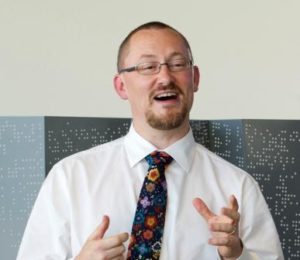 With nations such as Korea and Mongolia becoming increasingly innovative in their educational and pedagogical strategies, it is important that Australia does not rest on its record, a Flinders academic has said.
With nations such as Korea and Mongolia becoming increasingly innovative in their educational and pedagogical strategies, it is important that Australia does not rest on its record, a Flinders academic has said.
Speaking on his return from an Asia-Pacific UNESCO expert meeting in Bangkok, Professor Martin Westwell (pictured), Director of the Flinders Centre for Science Education in the 21st Century, said while many countries in the region have massive educational systems facing numerous challenges, some are responding with ambitious and sophisticated policy responses.
“They are saying that we’re not going to be able to teach all these kids all these things, so what are the essentials, the non-negotiables at the core?” Professor Westwell said.
In accordance with this approach, Professor Westwell said the UNESCO expert group was putting a strong focus on so-called “transversal competencies”.
“This is about identifying the skills that really underpin learning and development and the ability to use learning in a meaningful way,” he said.
Professor Westwell said the UNESCO group was keen to share understanding of the skills and development of their introduction across the region. During the meeting, Professor Westwell was elected to the steering group of UNESCO’s Education Research Institute Network (ERI-net) that will help coordinate related research across the member countries.
“When looking at what makes an effective student at school or university in the 21st century, knowing ‘stuff’ – a deep understanding of specific content – is necessary but is not sufficient,” Professor Westwell said.
In South Australia, he has been part of a regional study with teachers in developing the teaching of transversal skills while also surveying teachers’ perceptions and attitudes. The study feeds into a research paper by Professor Westwell and Kristin Smith into the development of transversal competencies in policy and practice across Australia.
Professor Westwell said that linear and hierarchical models of learning were not adequate for a non-linear,complex world.
“The idea of these transversal competencies is that they are empowering, that you can function in all sorts of places that you never imagined, rather than the one that you did imagine and that you specifically prepared for,” he said.
“Students need to be able to make discerning judgements, to make decisions and choices about the world using a deeper understanding of the knowledge they have, because the knowledge that they have is almost useless on its own.
“Equipping students to deal with the changing needs of society is part of the challenge.”
Professor Westwell said it was not envisaged that transversal competencies would be taught as separate subjects, topics or courses, but should be integrated into the principles of teaching and learning from reception to university level.
He said students need to be actively involved in constructing arguments that show not only have they understood what they have learned, but that they understand its implications and consequences across a range of scenarios and situations.
“Our students have to get better and better at answering the ‘So what?’ question,” Professor Westwell said.


We should get Australian children on CodeAcademy, or something similar. Children already use computers at an increasingly young age, by making computer coding part of the curriculum a nation could dramatically increase its innovation and technological advancement possibly before the generation even graduates.